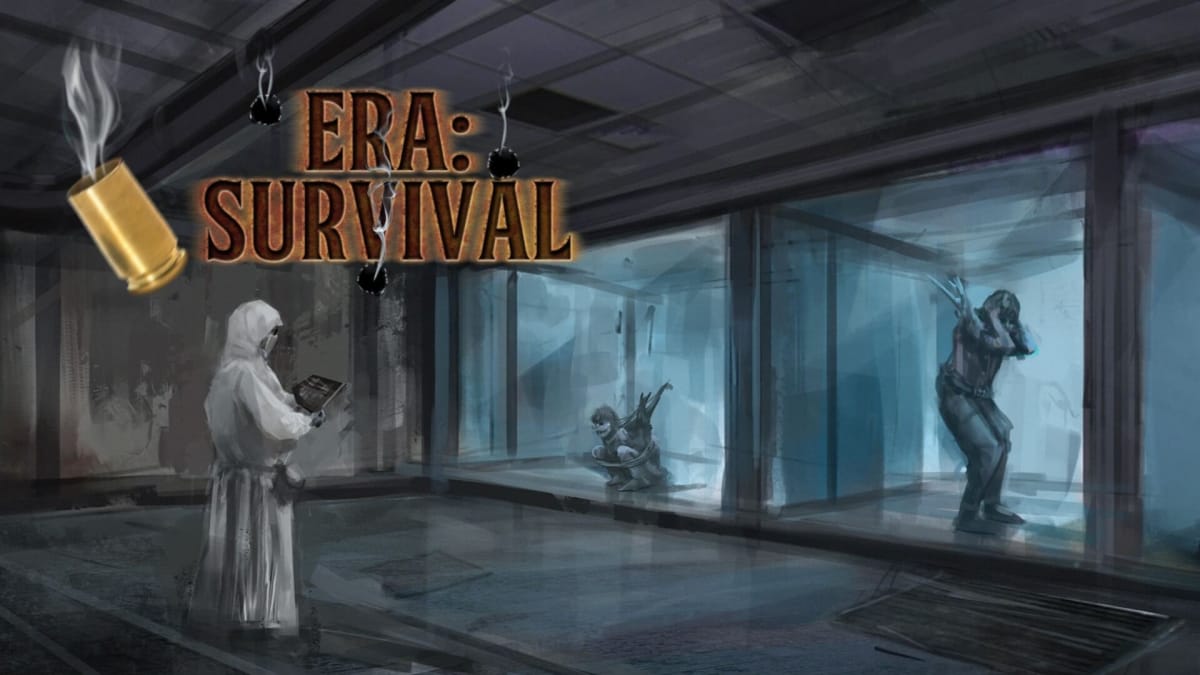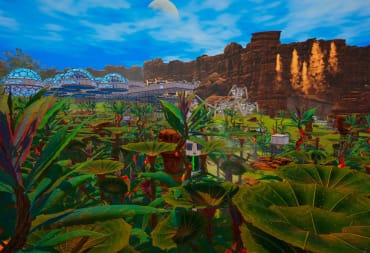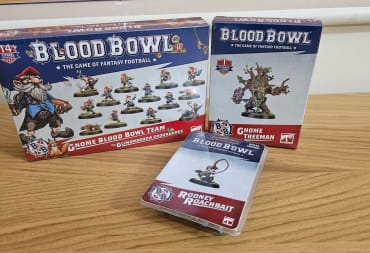Growing up on Gaia, you've seen some pretty nasty stuff. Death, Infection, Pain, Loss. But for the first time in your life you feel like you might really be in the deep end. You're almost out of bullets, your gas mask's filter is just about spent, and you think you and your crew may have wandered into a Hi-Zone. Something groans and shambles from the back of the facility you're raiding. Time is running out, but you need the supplies you came to find. Time to move, and move fast, before whatever it is that's making all that terrible noise rips you to shreds. Or before the Infection floating silently in the air transforms you into a mutated beast. This cheery picture is a slice of life in the world of Era: Survival, a post-apocalyptic tabletop RPG from Shades of Vengeance.
Era: Survival is an RPG set in a gritty post-apocalyptic world. A terrible parasite brought the world as we know it to its knees 100 years ago. The parasites still rage across the ruined landscape today, turning any red-blooded creatures it infects in mindless, aggressive, and mutated beasts with a mind only for further spreading the parasite. From this brutal vision of the future, over a dozen factions have sprung up vying for control and trying to carve out a bit of safety. From the flotilla-bound Citizens of Aqua (who steer clear of the mainland whenever possible), to the secretive Potestates (who believe the key to humanity's survival lies in the mutations brought on by infection), to the ruthless members of The Swarm (who feel that the only way to survive on Gaia is to forcibly take the resources you need), there are plenty of different approaches to harsh life.
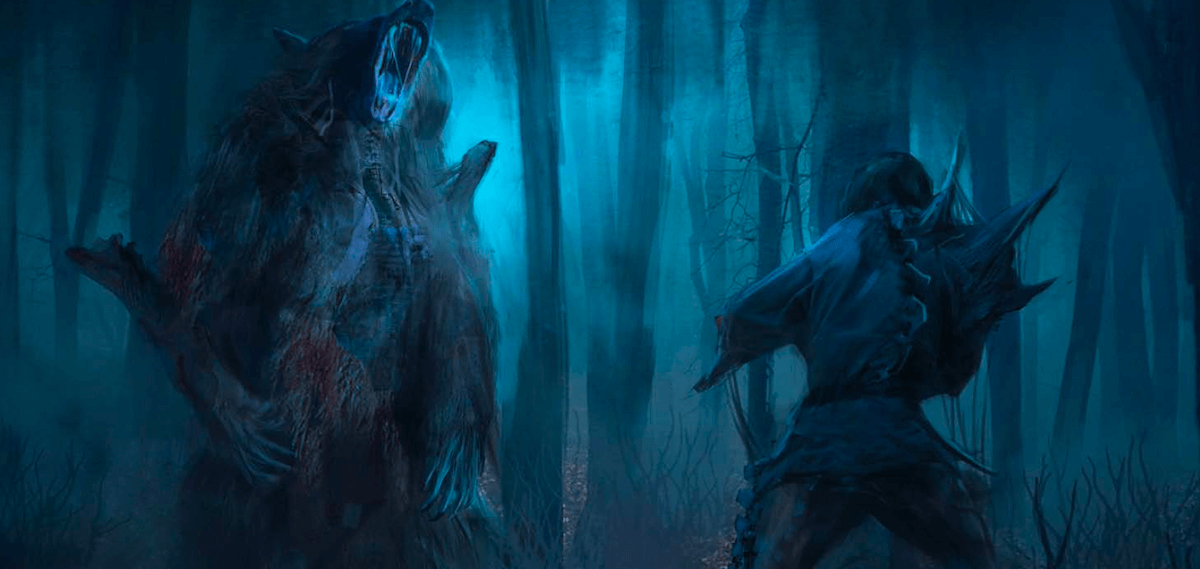
The game is played like most tabletop roleplaying games. A gamester runs adventures for a group of player characters. A typical game session could see players ransacking an abandoned factory to find valuable materials, fighting through hordes of zombie-like Shamblers on their way to a rendezvous, finding themselves trapped in a research facility with no memory of how they got there, or trying to navigate the politics of a town being forcibly recruited into a new religion. In this run down world, there's no shortage of (terrifying) adventure.
Players can choose one of many different backgrounds, from a builder to a priest to a prostitute. But these are all mostly for backstory and flavor, as each player is free to choose how they spend points toward the skills and attributes they want. The eight attributes of the game are: Strength, Intelligence, Charisma, Stamina, Willpower, Dexterity, Wits, and Luck. There are eighteen different skills, including: Brawl, Larceny, Construction, Esteem, and Seduction. By spending points on both attributes and skills, a natural picture of your character emerges. The core mechanic of the game revolves around rolling a set number of d10 dice to attempt to beat a difficulty threshold. For a simple example, let's say your character wants to punch a raider. The GM may decide that's a difficulty threshold of 7. So you look at your attribute, Strength, and your relevant skill, Melee, and you combine those two numbers to roll that many number of dice. With each die rolled, you're hoping to beat the number 7. If you roll multiple successes, you do really well. If you succeed but roll plenty of failures, that could severely complicate things for your character. It's a clean, elegant system that allows for interpretation (without feeling like you're just completely winging it).
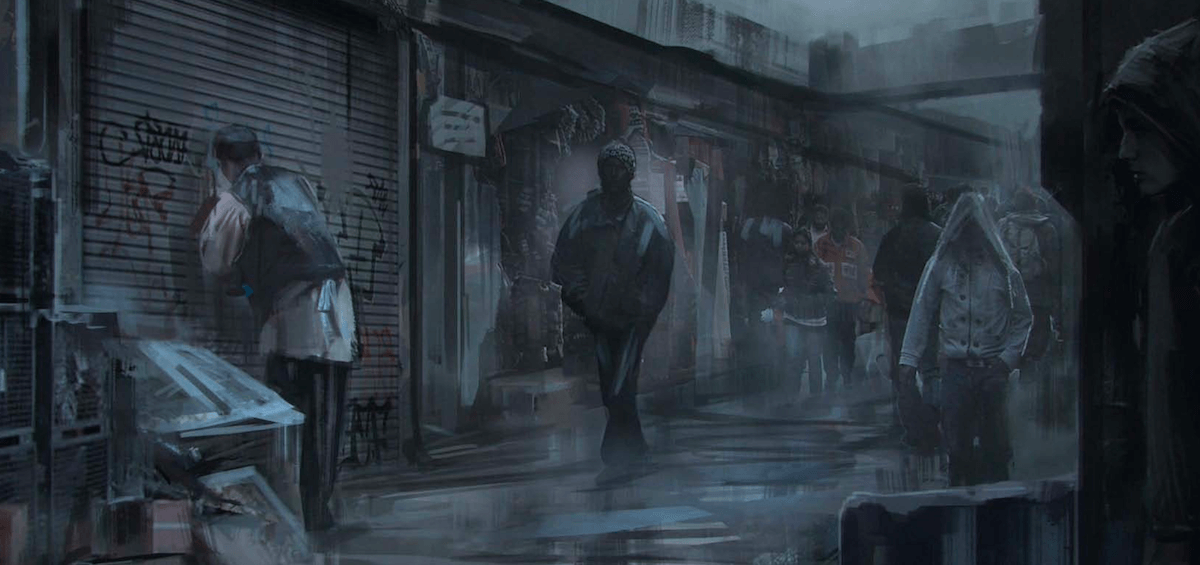
Where the game takes on its realistic complexity is the addition of items and weapons. A huge section of the book details different items you'll come across, their various uses, their durability, and so on. Managing your gear is just as important as keeping an eye on your health, and Era: Survival revels in the nitty gritty details. The game also includes a Karma system, where you'll gain or lose points on a Karma track based on the outcome of your actions (not, it should be mentioned, your intent). You'll gain cards that will help you no matter whether you're trending good or evil, which can be played throughout the game to confer bonuses.
While playing the game, I found that there's a balance that has to be struck between really sinking into the items and Karma, and just playing the game. It's easy to get distracted by the various ways you can utilize any given weapon, or thinking about how a Karma card could be played to best effect, and if left to my own devices I can get very bogged down in the minutia. So word of warning to the easily distracted player of GM, focus on the gameplay, the core rules, the story, and let everything else only come into play when you want it to.
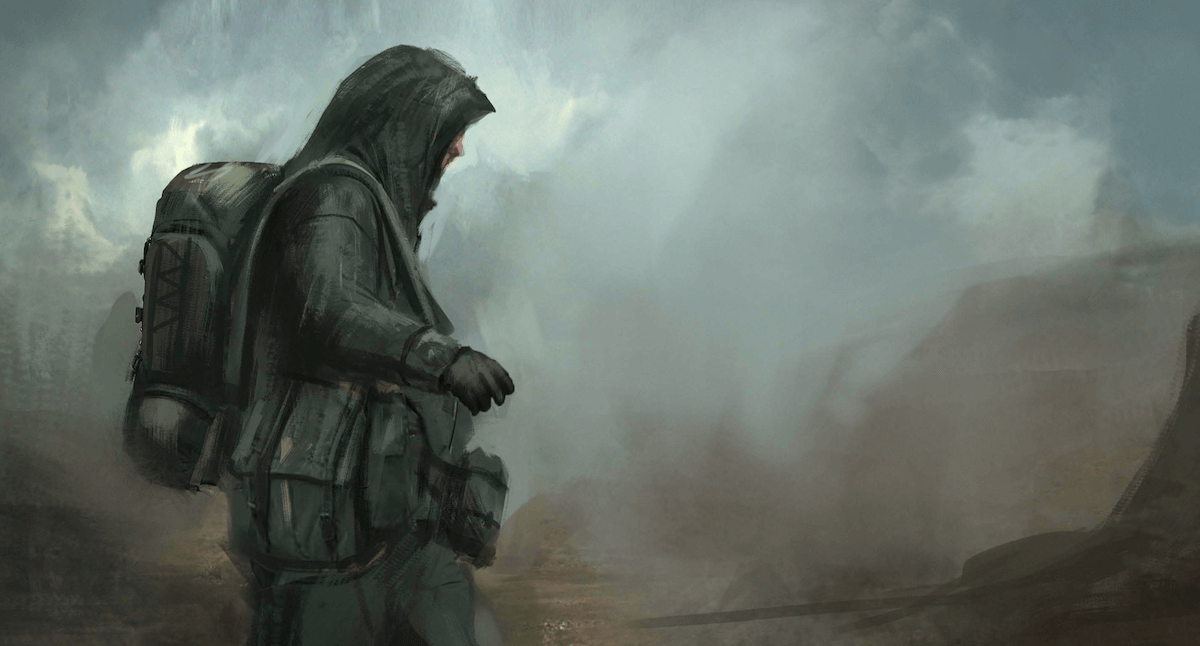
My one truly major complaint with the game is the organization of the rulebook. The first 101 pages are all dedicated to explaining and exploring the world of Era: Survival. After an initial rundown of what each faction of the game wants, there's a series of short stories diving deep into life on the planet. Some of them are quite fantastic reads, but their inclusion at the front of the book, before the reader even reaches character creation, put me off a bit. It set the stage, but I think it would have been better served at the back of the book. To that end, the actual rules of the game don't appear until the fourth section of the book, after character creation and a glossary of tons of items. And while the rules system is adapted from the core Era d10 ruleset, the presentation of said rules (which is a little on the complicated side for a modern TTRPG) at the end of the book will have plenty of newcomers flipping back and forth frantically while trying to understand character creation (myself included).
The Bottom Line
Aside from those complaints listed above, there's so much to love about Era: Survival. This was clearly a game made by people who love telling stories, and I think this is a really wonderful marriage of a real ruleset and open-ended plot. I've read plenty of RPG's that start with pages and pages of lore, but it's rare that that's then followed up with a solid, crunchy ruleset. Far too often these lore-heavy games offer up very light rules, and it's refreshing to see a game that doesn't shy away from mechanics. It's an almost completely elegant system, though I do think the Karma cards are unnecessary, and a bit extraneous. They feel tacked on, and may force players to act in certain ways just to achieve more powerful and interesting cards.
I also love realistic, post-apocalyptic settings. Yes there are monsters, and I suppose that's not very realistic, but your character also has to struggle to find portable drinking water, manage the batteries in their flashlight, and more. This is the kind of game where a GM would be well within their right to infer a penalty to movement on a character with a busted sneaker, and a whole mini-side-quest could spin out about that character trying to find duct tape to fix it. This may seem like an unnecessary tangent, but would you want to have a broken shoe while running from an infected, frothing mountain lion? At its core, Era: Survival is the kind of game that asks players to care about the lore of the world, care about their characters, and care about the few precious things they own.
Get This Game If:
- You want to move away from high-powered, superhero-esque tabletop RPGs
- You're looking for a game with a fresh take on the apocalypse
- You like game settings with a lot of lore
Avoid This Game If:
- You prefer your tabletop RPG's fantasy-flavored
- You're intimidated by a heavier (though not impenetrable) ruleset
- You don't want to role-play scrounging around for canned food
The copy of Era: Survival used in this review was provided by the publisher.
Review Summary
Have a tip, or want to point out something we missed? Leave a Comment or e-mail us at tips@techraptor.net
